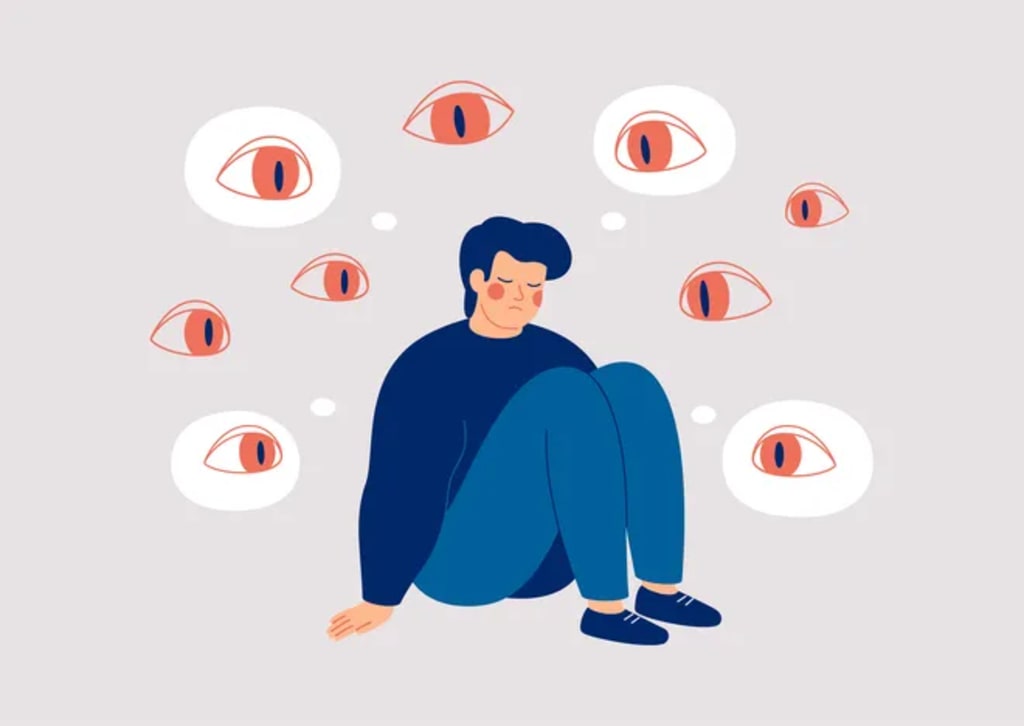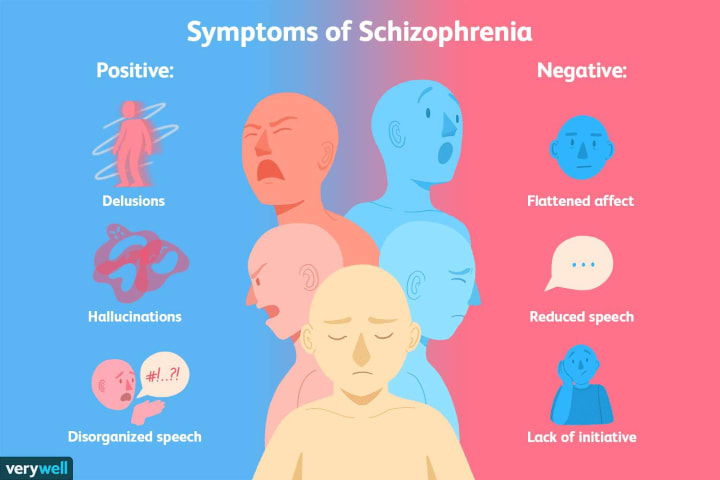What is a schizophrenic person like?
schizophrenic symptoms

What is a schizophrenic person like?
Schizophrenia is a serious mental illness characterized by a disconnection from reality, often manifesting as delusions and hallucinations. People with schizophrenia may experience different symptoms, including the following.
- Delusions
- Hallucinations
- Disorganized thinking
- Negative symptoms
- Cognitive symptoms
1. Delusions
Delusions are false beliefs that are not based in reality and are a common symptom of schizophrenia. They can take many forms, such as believing that someone is trying to harm them or that they have special powers. Delusions can be deeply held and may be difficult for the person to recognize as being untrue.

They may cause significant distress and can interfere with a person's ability to function in daily life. Delusions can be treated with medication and therapy, which can help the person to better understand and manage their delusions. It's important to note that delusions are just one aspect of schizophrenia and that the severity of delusions can vary widely among individuals with the disorder.
2. Hallucinations
Hallucinations are a symptom of schizophrenia in which a person sees, hears, or senses things that are not really there. These hallucinations can be terrifying and can involve any of the senses, but auditory (hearing) hallucinations, such as hearing voices, are most common. Hallucinations can be a distressing symptom and may cause the person to feel overwhelmed and out of control.
They may also cause the person to behave strangely, as they may be responding to things that others cannot see or hear. It's important to note that hallucinations are just one aspect of schizophrenia and that the severity of hallucinations can vary widely among individuals with the disorder. Treatment, including medication and therapy, can help to manage hallucinations and other symptoms of schizophrenia.
3. Disorganized thinking
Disorganized thinking, also known as disorganized speech, is a symptom of schizophrenia in which a person has difficulty organizing their thoughts and communicating effectively. This can manifest as problems with speaking and writing and may make it difficult for the person to convey their thoughts and ideas to others.
Disorganized thinking can cause confusion and frustration for both the person with schizophrenia and those around them. It can also make it difficult for the person to carry out daily activities and may cause problems with memory and concentration.
Disorganized thinking is just one aspect of schizophrenia and the severity of this symptom can vary widely among individuals with the disorder. Treatment, including medication and therapy, can help to manage disorganized thinking and other symptoms of schizophrenia.
4. Negative symptoms

Negative symptoms in schizophrenia refer to a lack of motivation, emotion, or interest in daily activities. These symptoms can be a significant barrier to functioning in daily life and may cause the person to withdraw from social interactions and activities.
Negative symptoms can also manifest as a lack of facial expressions or a flat affect, which means that the person does not show emotional reactions in the way that others would expect. Negative symptoms can be difficult to treat, as they may not respond well to medication and may require more intensive therapy and support. It's important to note that negative symptoms are just one aspect of schizophrenia and that the severity of these symptoms can vary widely among individuals with the disorder.
5. Cognitive symptoms
Cognitive symptoms of schizophrenia refer to difficulties with memory, concentration, and decision-making. These symptoms can impact daily functioning and make it challenging for the person to carry out tasks, learn new information, and make decisions.
Cognitive symptoms may cause problems with memory, such as forgetting appointments or important dates, and may make it difficult for the person to focus and pay attention. Decision-making may also be impaired, leading to difficulty making choices and solving problems.
Cognitive symptoms are just one aspect of schizophrenia and the severity of these symptoms can vary widely among individuals with the disorder. Treatment, including medication and therapy, can help to manage cognitive symptoms and improve daily functioning.
Conclusion
schizophrenia is a serious mental illness characterized by a disconnection from reality, often manifesting as delusions and hallucinations. People with schizophrenia may experience a range of symptoms, including delusions, hallucinations, disorganized thinking, negative symptoms, and cognitive symptoms.
The severity of these symptoms can vary widely among individuals with schizophrenia and some people may be able to lead relatively normal lives with the help of medication and therapy, while others may require more intensive support.
It's important to remember that schizophrenia is a complex disorder and that each person with schizophrenia is unique, with their own experiences, challenges, and strengths. It is best to consult with physiatrist doctor if it disturbs your daily life.
About the Creator
Essaki Vignesh
Hi Guys,
This is Essaki Vignesh. I am working as Civil Engineer. Basically I like to share the knowledge to other. so here I would like to share things what I know & I learned. So don't wait let come and share things and create good society
Enjoyed the story? Support the Creator.
Subscribe for free to receive all their stories in your feed. You could also pledge your support or give them a one-off tip, letting them know you appreciate their work.






Comments
There are no comments for this story
Be the first to respond and start the conversation.